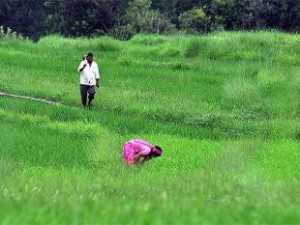 Farmers’ Protests: time for hard questions
Farmers’ Protests: time for hard questions
At the outset, I fully share the grief of families which lost their earning members during recent firing or because of suicides. But I must also state that just because industry has not paid back a lot of dues, therefor farmers should also not pay back, is a very perverse logic. Instead our argument should be to advise everybody to maintain good repayment record. We should analyse roots of farm crisis and understand that loan melas proved a death knell for the concept of supervised agri credit, loan wavers are worse. In a report to NABARD in 1983, I had argued for a few changes in our policy for farmers in drought prone regions and we could include flood and other risk prone farmers: a) rescheduling, rehabilitation and nursing finance, b) reducing transaction costs for getting services like health coverage for animals and self, and preventive maintenance of farm machinery, and c) organising consulting, curative and contractual services including insurance linked with credit; d) not insisting on male co-obligants for lending to women besides numerous other suggestions. As is often the practice, bureaucracy sleeps over the matter and we keep on rediscovering the wheel.
When growth takes place, as it happened in Madhya Pradesh, farmers’ expectations, quite expectedly, rise even further. Earlier in oilseed, we had a tragic practice that our imports of edible oil used to arrive at the time when our crop was harvested. This year, it happened with pulses. It seems there is a conspiracy (a strong word) to thwart all attempts to achieve self-reliance in these sectors. One can obviously not imagine that policy makers are not aware of these anomalies. Productivity of all chemical inputs has come down drastically due to sustainability crisis. It costs much more to draw the same amount of water due to decline in groundwater table. One has to use much more pesticide, fertilizer and other weedicides to get the same amount of effect. Even then the situation is becoming bad.
Farmers have to change irrigation practices urgently (flood irrigation costs more, yields less) and so also the cropping patterns, input use practice etc. Telling farmers that they can continue to use natural resources irresponsibly and yet economics would favour them is to betray the interests of our grandchildren. There is no case for politicisation here, every party is guilty of misleading farmers, free water did as much damage to Punjab as loan waivers in the past did to credit repayment ethics. This does not imply that farmers don’t deserve compensation for loss of income due to reasons beyond their control. Budgetary provisions may be made to compensate banks and non-defaulters for the same. Those who indeed pay loans in time should not be penalized for being responsible.
Let an empowered committee be set up under the Chair, Commission on Agri Costs and Prices or Adviser, to PMO to review the timing and quantity of agri import and export, credit policy for the same as well for stocks of these vulnerable commodities, need for changing policy for input use urgently and rethinking the technology development direction and pace. One should also look at the agrobiodiversity and other sustainability issues. Let the representatives of PMO, concerned ministry, NABARD, Exim Bank, Commerce, seed corporation, MMTC, APEDA, FCI and Finance ministry apart from agri and rural development ministry look at the gaps in data, planning, signalling, and farmers’ margins. Tillers that is tenants, workers and all those who are outside the banking system should not be ignored. Loan waiver does not help the poorest people who don’t get loan at all.
I hope we can for once, get over short term political games and look at the long terms interests of farmers, consumers, soil and water use and sustainability of our natural resources.
